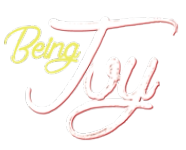

How do you define truth? There are as many definitions and theories about the word truth as there are probably “truths” out there. Although, there is one that really struck with me: truth – a fact or belief that is accepted as truth.
What a profound way of looking at it.
There are two words in that definition that interest me most. The first is “belief” and the second is “accepted”. Whose belief? Accepted by who?
Since this month’s theme is based on the joy habit of – Be Truthful – from Chapter 34 in my book Being Joy™, I want to explore the consequences of untruths a bit further.
You see, the thing to consider is this. What happens when your belief about something changes, either because of a shift in your perspective or new knowledge that comes to light? Are you willing to accept a new truth or hang on to old ways of looking at things because you feel safer in that space? And what are the consequences of either?
I don’t think it’s an accident that so many so-called truths are becoming dismantled all at the same time. The pandemic enabled the entire consciousness of the planet to pause and re-think what we believe and hold true.
How we think about our environment, what we choose to do for a living, where we want to live, how we “see” and care for vulnerable populations, and what we now know about our history.
And once you take the lid off the box of secrets, you can’t unsee them.
I’m speaking about the ugly truth of the residential school system in Canada that existed from 1879 to 1986.
Now, this week’s post is not going to go into any of the details about the past year’s public revelations and tragic discoveries. If you’ve been paying attention to the news, you are already aware of the urgent need for truth and reconciliation.
But for me, as a white Canadian, who was never taught the truth in our school system, it’s up to me to educate myself. Thankfully there are finally some good resources out there now.

On the eve of November 11, a day of Remembrance when we honour our veterans for their services in past conflicts, I’m choosing to spend the day also honouring our country’s indigenous survivors of domestic conflict as well as those who no longer walk on this earth.
I’ll be doing that by reading a great book that was recommended called A National Crime, written by John S. Milloy, a professor emeritus in the department of Native Studies and History, and Master of Peter Robinson College, Trent University in Peterborough, Ontario.
I’m preparing myself for some tough reading, but I owe at least that to my fellow indigenous humans who I share this country with now and in the future.
As Gandhi said in our opening quote, we can’t have peace (and I would add that we can’t have healing) without truth. But it must be a truth that we accept as reality before we can help heal the consequences of the lies and omissions.
That is the only way to peace. And that is the only way to joyful living.
Love from your Joy Mama,
![]()
P.S. One of the biggest reasons that people stay stuck in old truths that are no longer valid is the fear of change. It leads to rigid thinking and apathy and is one of the biggest barriers to joy and abundance. To learn more about this barrier and others, get your free copy of my e-book The 8 barriers to Joy and Abundance.
If you enjoyed this post, you may also enjoy these:
Are you speaking your truth?
How do you show respect?
Change your beliefs, change your truth
Do you know your family tree?
Image from Pixabay.




This Post Has 0 Comments